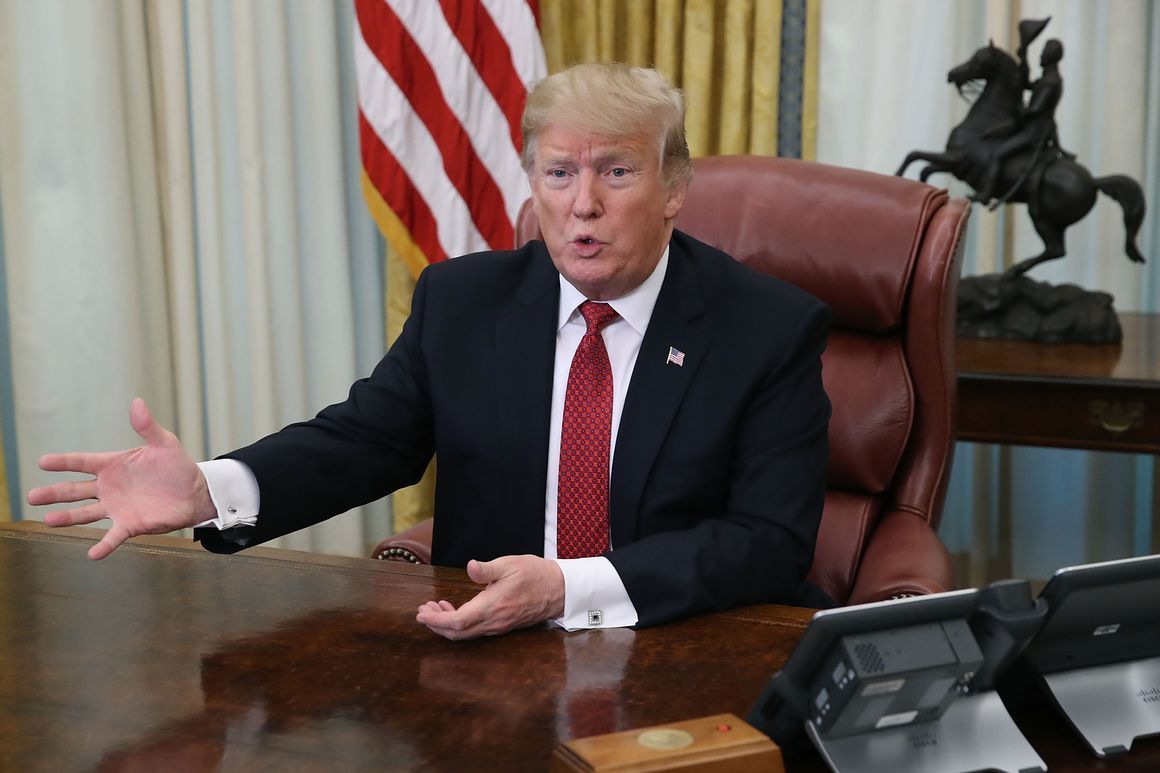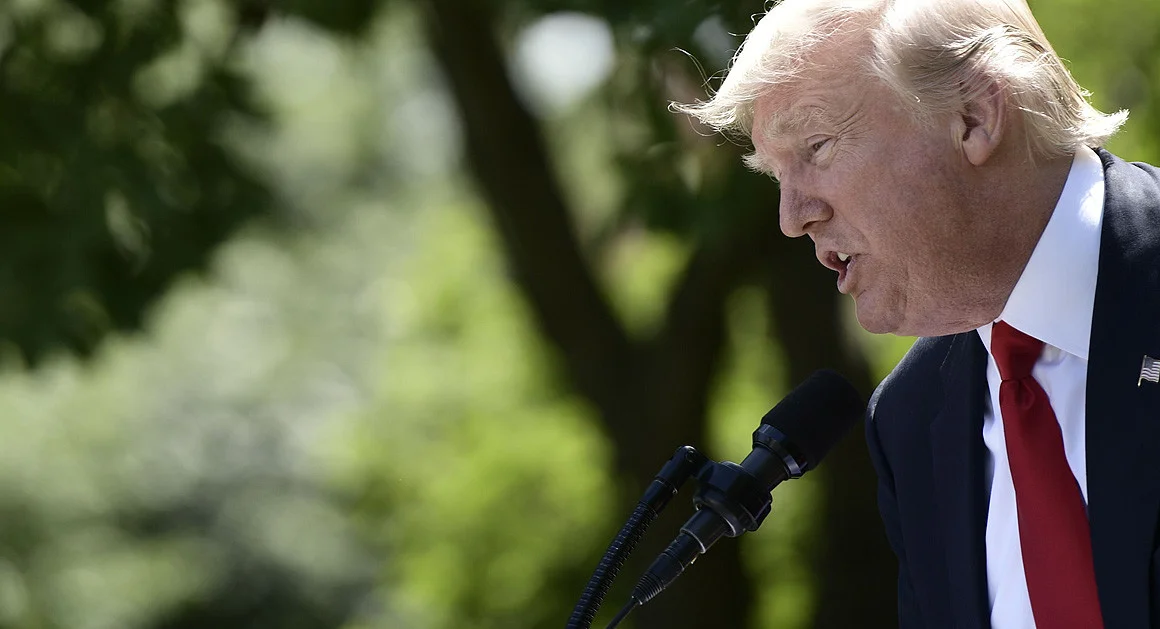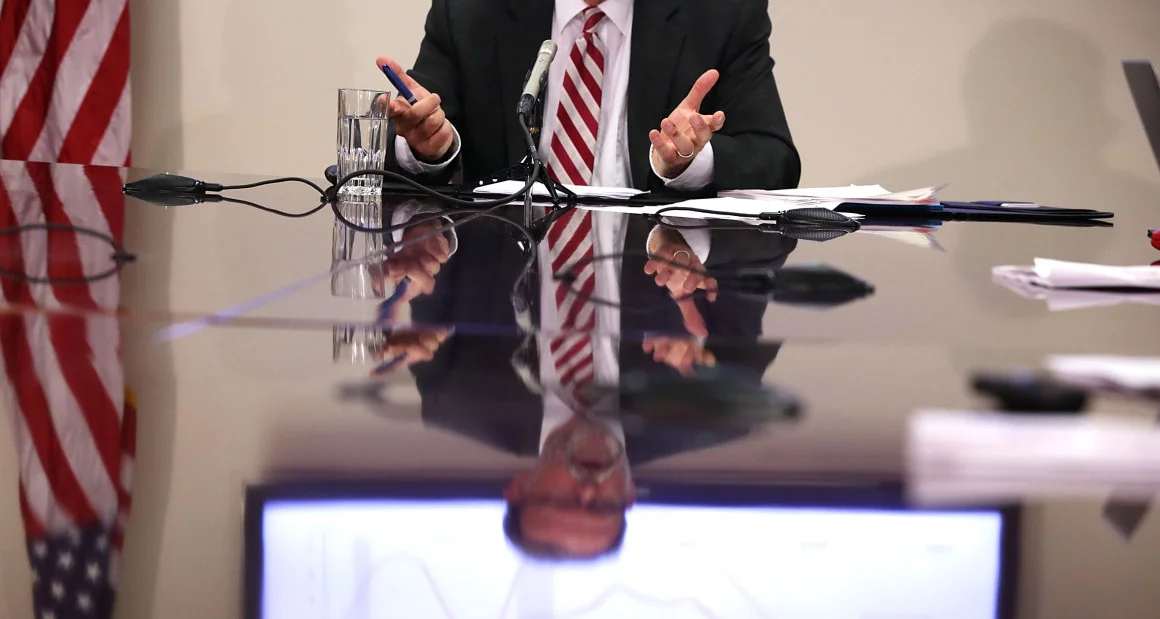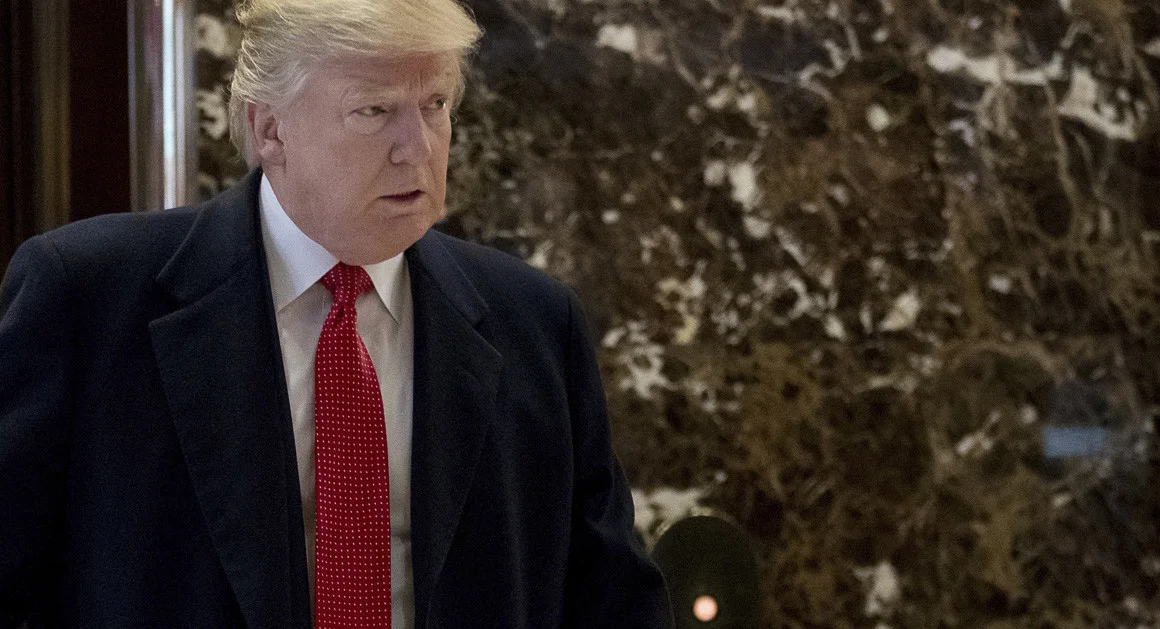The recent grilling of TikTok’s CEO in front of an almost entirely hostile congressional committee was a reminder that a hardening stance against China is one of the few areas of genuine bipartisanship. That and an antagonistic stance toward Big Tech, so TikTok actually manages to check two boxes.
Regardless of whether the former president is ultimately indicted, the case points to a problem that’s bigger than Trump: The U.S. government has become addicted to shrouding its actions behind a veil of secrecy, especially when it comes to national security.
As tempting as it to take the rise of conspiracy theories as a singular mark of a partisan internet-fueled age, however, there’s nothing particularly modern or unique about what is happening now.
Once Biden undoes some of what Trump has done, he could leave his most indelible and important mark by rolling back that trend in American governance, ceding presidential powers back to Congress and the states, making it harder for any subsequent president to abuse the power of the office.
After weeks of uncertainty following President Donald Trump’s executive order on TikTok—ordering its Chinese parent company to divest its American operations within 90 days—the video app that has stolen the hearts, if not the data, of millions of teens has found an American partner: Oracle.
The parties killed the convention before the pandemic. Now they have a chance to reinvent it.
Ninety days into the Covid-19 pandemic and shutdown, American leaders now have to confront an unsettling truth: Bringing an entire economy to a halt so fast, and so widely, isn’t a decision they can just reverse.
The blue CitiBike I was riding, unlocked with an iPhone, was very much a 21st-century phenomenon, but the landscape around it felt like 1968. In the past days, 1968 has emerged as a meme, a way to understand what we’re living through right now.
Any look at the news suggests that we’re in the early stages of a society-changing response to an unpredictable virus that will have vastly negative consequences for the economy, not just in the U.S., but around the world.
This past week, however, one thing became clear: Donald Trump may be exactly the president we need now.
If you detect a note of skepticism already creeping in, it’s because this pseudo-deal deserves not just skepticism but calling out as a dramatic failure of U.S. policy that will have lasting and deleterious effects.
The Trump administration, with its fixation on trade balances and its view that the Chinese have ripped off U.S. consumers for decades, clearly initiated the current trade war. But the truth is that American animosity to the rise of China can’t all be attributed to President Donald Trump.
As President Donald Trump escalates his trade war with China, the administration is adamant that China is bearing the brunt of the tariffs. “They’re not hurting anybody [in the United States],” White House trade adviser Peter Navarro said on CNN’s “State of the Union” on Sunday. “They’re hurting China.”
When President Donald Trump made good on his promise to be “Tariff Man” this week, he sent economists into a lather, pushed the stock markets onto a wild and largely downward ride, and thrilled parts of his political base, who saw a president finally willing to use his bluntest policy weapon against America’s biggest economic rival.
The yearlong China-U.S. trade war now appears to be in its final stages. Tariffs will be lifted, Beijing will promise to buy more American goods and take a harder stance on technology transfers and industrial espionage, and Trump will declare victory — but it will be Pyrrhic, at best.
The president’s proposed reallocation of federal spending to build his wall is hardly an existential crisis for American democracy.
So it happened. After months of speculation about whether and when Gary Cohn might resign, he finally did. The former prince of Goldman Sachs—and the unofficial leader of the free-traders, internationalists and Wall Streeters at the White House
Judging from their flurry of op-eds and tweets denouncing, dismissing or analyzing President Trump’s new National Security Strategy, America’s foreign policy mandarins would have you believe that the document is either dangerous, irrelevant or both. It is neither.
It’s fashionable these days to compare our present to the Gilded Age: rising inequality, labor struggling while capital thrives, an astonishingly wealthy and concentrated elite appearing to amass an inordinate amount of power. But a stark difference between our era and the last decades of the 19th century is the nature of the American presidency.
In 1973, the late, great historian Arthur Schlesinger published The Imperial Presidency, charting the post-World War II expansion of presidential power and warning that the office had dangerously diverged from the parameters established by the Constitution and subsequent precedent.
Donald Trump’s withdrawal from the Paris Accords is widely attributed to the now-waxing influence of the America First nationalists in the White House, but several days before that announcement, national security adviser H.R. McMaster and director of the National Economic Council Gary Cohn
Every few years, Washington rouses itself from its partisan noise and rounds its attention on the Congressional Budget Office, a sleepy, nonpartisan place that quietly wields immense influence over most legislation of any consequence.
Just weeks into Donald Trump’s presidency, you would think that everything had changed. The uproar over the president’s tweets grows louder by the day, as does concern over the erratic, haphazard and aggressive stance of the White House toward critics and those with different policy views. It is the illusion of a presidency, not the real thing.
Of the many polarizations of the United States today, the battle over regulation is particularly fierce and many years in the making. Over the past decades, since at least the presidency of Ronald Reagan, the right and the Republican Party have come to view regulation as the premier sign of government overreach, stifling freedoms and hobbling economic growth. The left and the Democrats for the most part see regulation as the vital bulwark protecting the mass of Americans from corporate and government abuse.
Donald Trump ran his company and campaign, as many have observed, like an episode of “Game of Thrones”: Pit various factions against one another and see who comes out on top. It may be an inelegant and crude way to manage, but it has a certain logic if you are interested in power and who can wield it effectively.
He sees it as zero-sum. She believes all boats rise together. Hillary is right, but a lot of people are buying into Trump’s vision.
It is a relief that Donald Trump has finally turned to policy. Because now we can see, finally, that his policy ideas are as frothy, bombastic and detached from the world as the rest of his rhetoric. What the GOP candidate outlined in his big economic speech in Detroit on Monday relies entirely on an outdated theory (trickle-down economics)
“Have you no sense of decency, sir, at long last? Have you left no sense of decency?” Those cutting words, delivered on national television, effectively ended the career of Senator Joe McCarthy. For four years, McCarthy had enjoyed a kind of immunity as he smeared anyone he pleased while on a national witch hunt for Communist sympathizers.
Not only hasn’t he retracted his pledge to ban Muslims from America’s shores, Donald Trump has doubled down on it over the past week. In the wake of the Orlando shootings, Trump announced that as president he would “suspend immigration from areas of the world where there is a proven history of terrorism against the U.S.”
Tweets from @ZacharyKarabell
-
RT @BullsBearsFBN: Tonight joining @DavidAsmanfox on @BullsBearsFBN we have @zacharykarabell @caroljsroth @IamJohnBurnett @JCLayfield!… https://t.co/G1QJ6JXJOz
-
Refusing to attend a vote and fleeing the state because you are in the minority and will lose is a cowardly and ant… https://t.co/ERcpjBW3LV
-
RT @BullsBearsFBN: Tonight joining @DavidAsmanfox on @BullsBearsFBN we have @zacharykarabell @JonathanHoenig @lizpeek @GaryKaltbaum! T… https://t.co/CgxAvQLUKi
-
Better to do it themselves: https://t.co/EzKjfcdoJV
-
RT @peterbakernyt: The deal to avert tariffs that Trump announced with great fanfare consists largely of actions that Mexico had alrea… https://t.co/uRqNLD5db5
-
RT @TAS2: Just finished @zacharykarabell's Leading Indicators, and I am so grateful he wrote it. Is it the only book on the h… https://t.co/pYChiS4CxS
-
How much of a threat is dark money? https://t.co/MMOaazckTZ via @nytimes
-
RT @peterbakernyt: As impeachment is debated in DC, check out the history of it from the founders through Johnson, Nixon and Clinton.… https://t.co/e2n7pplfZ5
-
You often need to work w people who revile you and who you don’t like. Nixon and a very hostile congress passed muc… https://t.co/TsvrMOYBnA
-
It was a. Very. Serious. Photo https://t.co/edT9d1k82r
-
Not quite the intended outcome: Trump’s Trade War Is Making Mexico Great https://t.co/ErQ5H6Nski via @politicomag #china #mexico #tariffs
-
About to have what is sure to be a compelling convo w @SSRoachUSChina on China. You can watch live via @techonomy… https://t.co/TFd5fbHvIY





























Donald Trump is right—the United States is not in a trade war with China.At least, not yet. As the rhetoric has flown back and forth between Washington and Beijing, breathless news coverage has made it seem as though the war of tariffs has already begun. It has not—hardly any new duties have been levied.